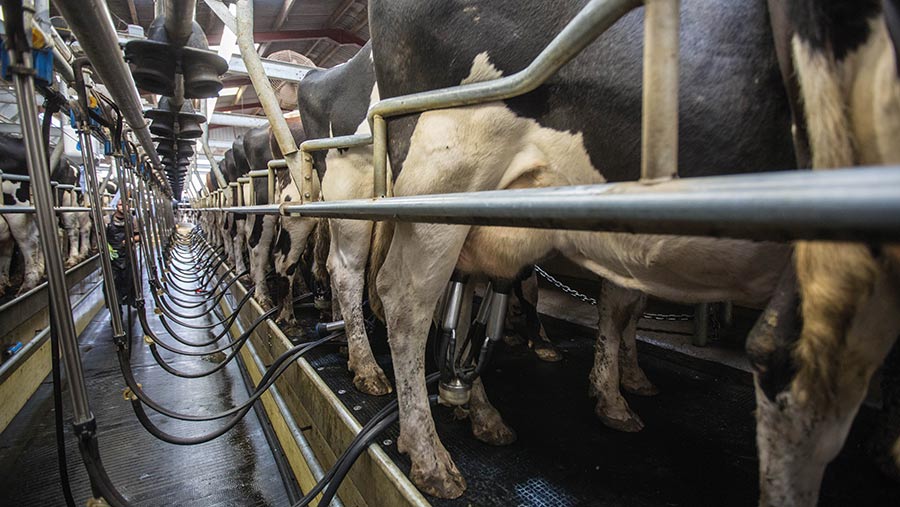Opinion: Beware the poor work-life balance of dairy farming
 © Tim Scrivener
© Tim Scrivener We have finally reached the fabled “quiet” time of year on the farm.
We’ve finished calving until late August, the replacement heifers are weaned, the beef calves are all sold, and we’ve finished mating the spring herd.
Yet, somehow, I find myself feeling more stressed than ever.
A TB test, a staff member off sick and my son’s nursery school closing with a week’s notice have all been contributing factors.
See also: How dairy farmers can address sector’s labour crisis
I was due to go away for a weekend with my mum, but unfortunately she was unwell and we didn’t make it.
Part of me breathed a sigh of relief, thinking it would at least give me a couple of days to catch up on some paperwork.
After nearly 10 years of being on the farm full time, the feeling of constantly chasing my tail is something I’ve grown used to, but never really come to terms with.
I went into dairy farming having seen my husband’s experience on a block-calving farm in New Zealand where, after the hectic spring period, there was remarkably little to do and it was actually possible to get bored.
I imagined we would replicate this system in the UK and have the same work-life balance, with more free time for hobbies and holidays.
For many reasons (more complex farm layouts, cows housed for longer over winter, greater use of bought-in feed, to name a few), I now understand this level of simplicity would be difficult to achieve here.
But I still believe it shouldn’t be a major ordeal to leave the farm for a few days once in a while, and have time during the week to go to an exercise class or catch up with a friend.
There is still a culture of pride in working excessive hours on farms here, and a reluctance to embrace different working rotas such as “10 on, four off” which are common in New Zealand.
They require more staff (I do realise how difficult recruitment is at the minute), and better training and communication among teams to ensure consistency, regardless of which staff are working on a particular day.
But I think this is the direction we have to move in if we want to keep up with the times.
Agriculture has thought of itself as an exceptional case and made excuses for too long about why we need to work such long hours.
Veterinary practices and zoos both involve looking after animals, but manage to operate shift patterns for their staff.
That said, as a business owner, I have to accept that if I want to succeed I have to put in the hard yards.
I don’t know any successful entrepreneurs who haven’t had to work crazy hours at some point in their careers to get their businesses off the ground.
But at times when everything feels overwhelming, it helps to step back and remember the bigger picture.
To paraphrase Antoine de Saint Exupéry: “If you want to build a boat, don’t start by cutting timbers, but teach people to dream of the deep and endless sea.”
For me, the deep and endless sea is the dream of owning our own farm.
When I picture it in my head, the daily stresses melt away and I feel re-energised to tackle another day.

